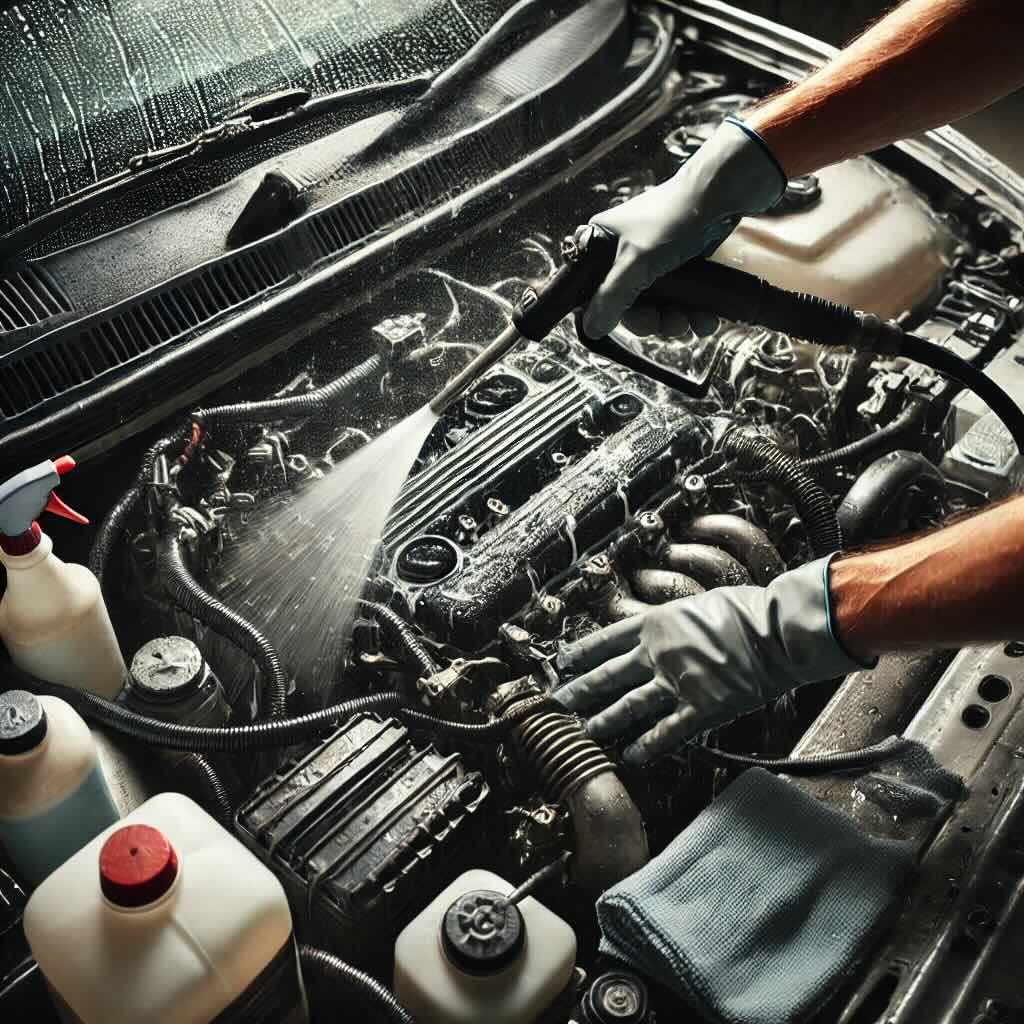Is It Safe to Detail an Engine Bay?
Detailing an engine bay is an often-overlooked aspect of car maintenance. A clean engine not only enhances your vehicle’s appearance but also allows you to spot potential issues like leaks or worn parts. However, many car owners wonder, is it safe to detail an engine bay? The answer is yes—with the right precautions and techniques, engine bay detailing can be safe and highly beneficial. Here's everything you need to know about safely detailing your engine bay.
Why Detail Your Engine Bay?
Before diving into safety, let's explore why engine bay detailing is worth your time:
Aesthetic Appeal: A clean engine bay gives your car a pristine, well-maintained look, boosting resale value.
Preventative Maintenance: Spotting leaks, rust, or worn-out components becomes easier when the engine is clean.
Longevity: Removing grime and grease helps prevent corrosion and ensures your engine components last longer.
Is It Safe to Detail an Engine Bay?
Yes, it is safe to detail an engine bay, but only if you take certain precautions. Modern engine bays are built to handle exposure to elements like rain, but improper cleaning can damage delicate components. Follow these steps to ensure a safe engine bay detailing experience:
1. Protect Sensitive Components
When detailing, sensitive components such as electrical parts and air intakes are at risk of water exposure. To prevent damage, use plastic bags or covers to shield:
Battery terminals
Alternator
Fuse boxes
Exposed wiring
This simple precaution will help you avoid electrical short circuits and damage to crucial engine parts.
2. Use the Right Cleaning Products
The products you use can make or break your engine bay detailing job:
Degreasers: Choose water-based or biodegradable degreasers, which are less harsh on plastics and rubber.
Soft brushes: Use soft detailing brushes to gently loosen dirt without damaging the engine components.
Microfiber towels: These are perfect for wiping down surfaces and absorbing excess moisture.
Avoid using strong chemicals like acid-based cleaners, which can harm sensitive engine parts.
3. Be Careful With Water Usage
Water is necessary to rinse the engine bay, but too much can be harmful. Follow these tips to minimize the risk:
Low-pressure washing: Use a gentle stream or a spray bottle instead of a high-pressure washer, which can force water into sensitive areas.
Rinse sparingly: Focus on rinsing only where needed, using as little water as possible to prevent excess moisture buildup in electrical components.
4. Cool Down the Engine Before Cleaning
Always make sure the engine is cool to the touch before you begin detailing. Applying water or cleaning products to a hot engine can cause rapid temperature changes, potentially leading to damage or burns.
5. Drying the Engine Bay Properly
After cleaning, thoroughly drying the engine bay is essential to prevent moisture from causing damage:
Compressed air: Use compressed air to blow water out of tight spots and electrical connections.
Microfiber towels: Wipe down larger areas with microfiber towels to absorb leftover water.
Air drying: Leave the hood open for a few hours to allow everything to air dry completely before starting the engine.
6. Apply Engine Dressings
To give your engine bay a polished look, apply engine dressings to plastic and rubber parts after cleaning. These dressings not only enhance appearance but also provide UV protection, helping to prevent fading and cracking.
When to Avoid Detailing an Engine Bay
There are times when it’s best to avoid or be extra cautious with engine bay detailing:
Older vehicles: Older cars may have more vulnerable wiring and electrical systems, which can be more prone to water damage.
Aftermarket modifications: Cars with custom wiring or upgrades might not be as well-sealed, so it's essential to use dry-cleaning methods like wiping down surfaces with microfiber towels or using compressed air.
Conclusion: Is Engine Bay Detailing Worth It?
With the right approach, detailing an engine bay is not only safe but highly beneficial for your vehicle's performance and longevity. By taking precautions like protecting sensitive parts, using proper cleaning products, and managing water usage, you can keep your engine bay clean and running smoothly. Just remember to follow the steps carefully, and you’ll avoid any potential risks.
So, is it safe to detail an engine bay? Absolutely—just make sure you do it right!

